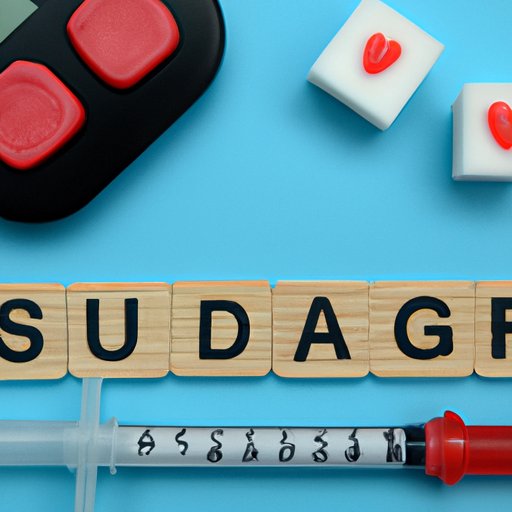How to Lower Blood Sugars for Better Health
High blood sugar levels can cause a range of health problems, including type 2 diabetes, heart disease, and stroke. However, there are several strategies you can use to lower your blood sugar levels and improve your overall health.
Eating Low-Carb and Low Glycemic Index Foods
Low-carb and low glycemic index foods are effective at reducing blood sugar levels. These foods are low in sugar and carbohydrates, which means they won’t cause blood sugar to spike like high-carbohydrate foods do. Examples of low-carb, low glycemic index foods include leafy greens, vegetables, nuts, and lean proteins like fish and chicken.
Meal planning is key to eating low-carb and low glycemic index foods. Start by preparing a weekly meal plan that includes plenty of fruits and vegetables, whole grains, and lean proteins. Avoid processed foods, which are often high in sugar and carbohydrates.
Exercising Regularly and Maintaining a Healthy Weight
Exercise is essential for regulating blood sugar levels. It improves insulin sensitivity, which helps your body use glucose more effectively. Aim for at least 30 minutes of moderate-intensity activity, such as brisk walking, biking, or swimming, most days of the week. If you’re new to exercise, start slowly and build up gradually to avoid injury.
Maintaining a healthy weight is also important for preventing high blood sugar levels. Being overweight or obese can make it more difficult for your body to use insulin correctly, which can lead to high blood sugar levels. To maintain a healthy weight, aim to eat a balanced diet and exercise regularly.
Staying Hydrated by Drinking Plenty of Water and Avoiding Sugary Drinks
Staying hydrated is crucial for regulating blood sugar levels. When you’re dehydrated, your body produces more cortisol, a hormone that can increase blood sugar levels. Aim to drink at least eight glasses of water a day, and avoid sugary drinks like soda and fruit juice, which can cause blood sugar to spike.
If you’re looking for alternative beverages, try unsweetened tea or coffee, or add fresh fruit to your water for flavor.

Increasing Fiber Intake through Whole Grains and Fruits and Vegetables
High-fiber foods like whole grains, fruits, and vegetables are good for regulating blood sugar levels. Fiber slows down the absorption of glucose in the bloodstream, which can help prevent blood sugar spikes. Aim to get at least 25 grams of fiber a day.
To increase fiber intake, add whole grains like brown rice, quinoa, and barley to your meals. Snack on fruits and vegetables instead of processed snacks, and aim to include leafy greens and cruciferous vegetables like broccoli and cauliflower in your meals.
Managing Stress Levels to Reduce Blood Sugar Levels
Stress can cause blood sugar levels to rise, so it’s important to find ways to manage stress in your daily life. Try relaxation techniques like deep breathing, yoga, or meditation. Make time for activities you enjoy, like reading or listening to music, and prioritize self-care. It’s also important to get enough sleep, as lack of sleep can cause stress and affect blood sugar levels.
Checking Blood Sugar Levels Regularly and Taking Medication as Prescribed by a Doctor
Regular monitoring of blood sugar levels is important for managing high blood sugar levels. Work closely with your healthcare provider to develop a monitoring schedule that works for you. If you are prescribed medication, be sure to take it as directed to help regulate your blood sugar levels.
Incorporating Herbs and Supplements such as Cinnamon, Chromium, and Alpha-Lipoic Acid into the Diet
Certain herbs and supplements may help manage high blood sugar levels. Cinnamon, chromium, and alpha-lipoic acid are three examples of natural remedies that have been shown to help regulate blood sugar levels. However, it’s important to talk to your healthcare provider before taking any supplements to make sure they are safe and effective for you.
Conclusion
Lowering blood sugar levels is an important step for maintaining good health. By incorporating a combination of low-carb, low glycemic index foods, exercise, hydration, and herbs and supplements into your diet, you can help regulate your blood sugar levels and prevent health problems associated with high blood sugar. Always work with your healthcare provider to develop a plan that is safe and effective for you.
